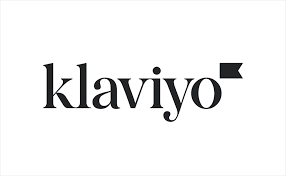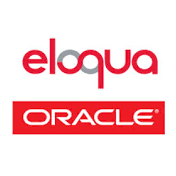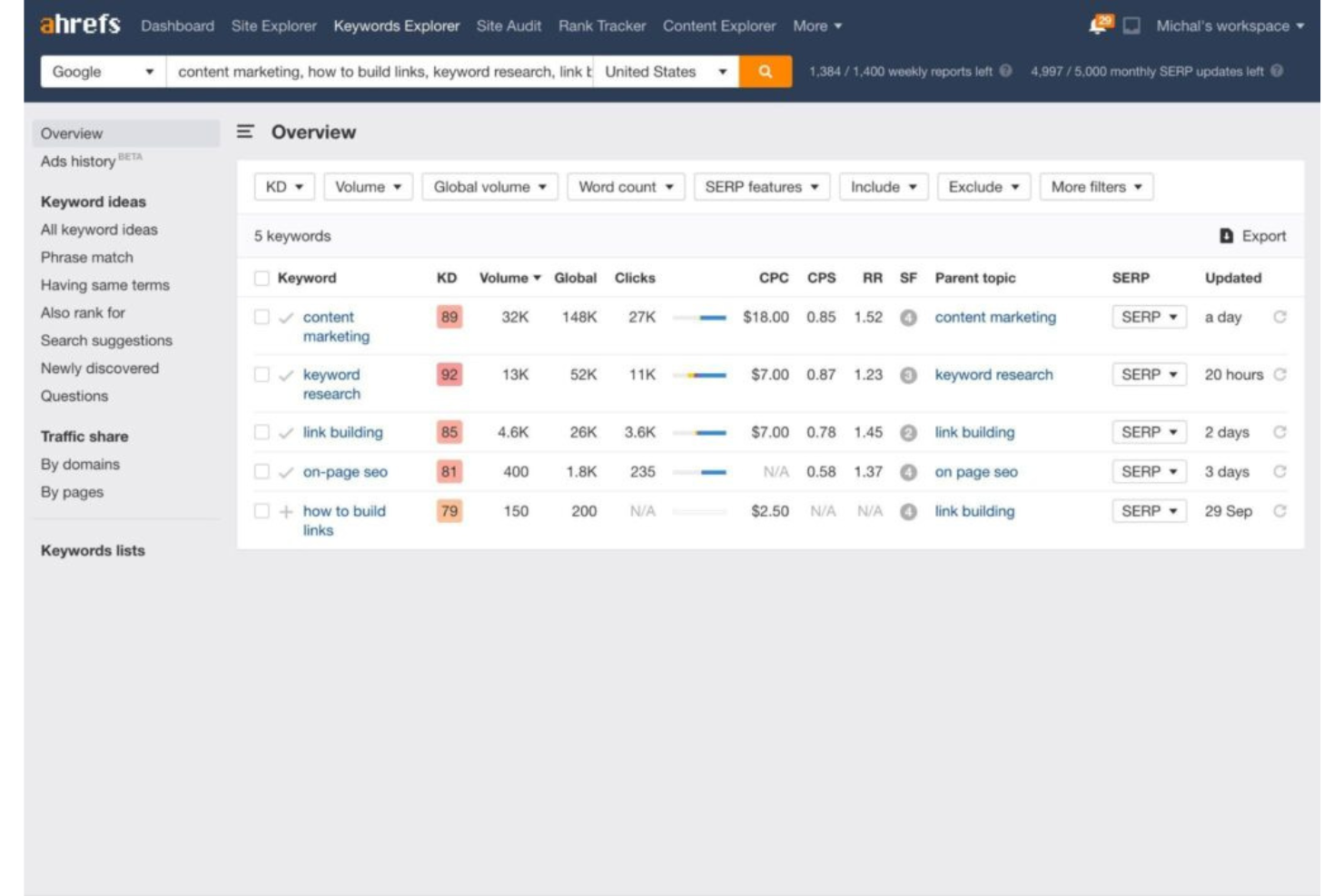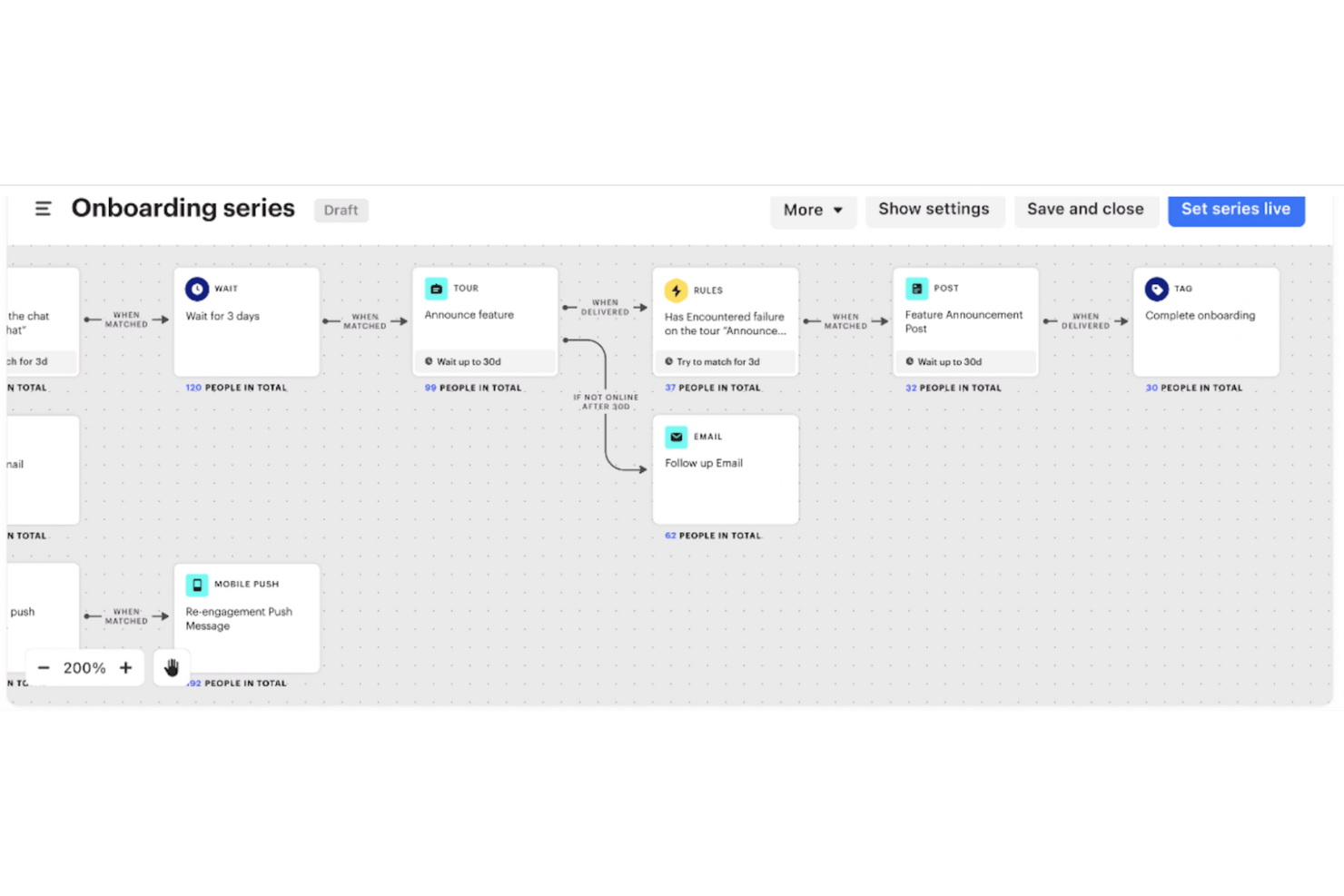10 Best Marketing Automation Software Shortlist
Here’s my shortlist of the 10 best marketing automation software along with what I found each does best:
Our one-on-one guidance will help you find the perfect fit.
The best marketing automation software helps marketing teams generate more qualified leads, personalize outreach at scale, and drive conversions without constant manual effort. When campaigns are managed across disconnected tools, CRMs don’t sync properly, or lead handoffs between marketing and sales break down, performance suffers.
Not all platforms are built to handle these challenges. Some include unnecessary features, while others can’t support complex workflows or require too much technical maintenance. The right tool supports your process efficiently and reliably.
As someone who’s worked in marketing leadership for over 10 years, I know the difference the right tool can make. I’ve spent over 500 hours evaluating more than 30 marketing automation tools testing lead-routing logic, integration depth, segmentation capabilities, and reporting accuracy.
This guide focuses on the top marketing automation software that consistently deliver measurable results across fast-moving marketing teams.
Why Trust Our Reviews
We’ve been testing and reviewing marketing software since 2022. As marketing experts ourselves, we know how critical and difficult it is to make the right decision when selecting software.
We invest in deep research to help our audience make better software purchasing decisions. We’ve tested more than 2,000 tools for different marketing use cases and written over 1,000 comprehensive software reviews. Learn how we stay transparent & our software review methodology.
The Best Marketing Automation Software Summary
| Tool | Best For | Trial Info | Price | ||
|---|---|---|---|---|---|
| 1 | Best for integrated ecommerce email & SMS automation | Free plan available | From $11.20/month | Website | |
| 2 | Best for automated lead routing | Free demo available | Pricing upon request | Website | |
| 3 | Best for automating ad placement and targeting | Free demo available | Available upon request | Website | |
| 4 | Best for reputation management | Free demo available | Pricing upon request | Website | |
| 5 | Best for tailored messaging throughout the buyer's journey | Free plan available | From $45/month | Website | |
| 6 | Best for comprehensive CRM integration | Free plan + demo available | From $800/month + $45/month for additional seats | Website | |
| 7 | Best for text automation | 14-day free trial | From $45/month | Website | |
| 8 | Best for automating brand mentions | Free plan available | From $129/month | Website | |
| 9 | Best for small businesses | Free demo + free plan available | From $12/user/month (billed annually) | Website | |
| 10 | Best for customer service | 14-day free trial | From $29/user/month (billed annually) | Website | |
| 11 | Best for omnichannel marketing automation | Free demo | Customized pricing upon request | Website | |
| 12 | Best overall affordable option | 30-day free trial + free plan available | From $13/month | Website | |
| 13 | Best for entrepreneurs | 14-day free trial | From $79/month | Website | |
| 14 | Best for automating customer engagement | 30-day free trial + free demo available | From $15.58/month (billed annually) | Website | |
| 15 | Best for nurturing leads | 14-day free trial | From $249/user/month (billed annually) | Website | |
| 16 | Best for lead nurturing | Free demo available | From $12/month (billed annually) | Website | |
| 17 | Best for enterprise accounts | 30-day free trial | Pricing upon request | Website |
-

Eloqua
Visit WebsiteThis is an aggregated rating for this tool including ratings from Crozdesk users and ratings from other sites.4.3 -

Optimizely
Visit WebsiteThis is an aggregated rating for this tool including ratings from Crozdesk users and ratings from other sites.4.2 -

Uberflip
Visit WebsiteThis is an aggregated rating for this tool including ratings from Crozdesk users and ratings from other sites.4.3
Best Marketing Automation Software Reviews
I’ve provided overviews for all my selections below. I focused on standout features and noted what sort of company and use case each was best for.
Omnisend is a marketing automation platform designed to assist ecommerce businesses in engaging with their customers through email marketing, SMS messaging, and web push notifications. The platform provides tools for list building, campaign automation, and sending targeted campaigns.
Why I picked Omnisend: I like that the platform offers customizable templates for your email, SMS, and web push notification campaigns, so you can deliver an on-brand, personalized experience from a centralized place. It also offers pre-built automation workflows, like a welcome series, cart abandonment, order confirmation, and cross-selling. These automation are easily adjustable with Omnisend's drag-and-drop editor.
The platform also gives you the option to build your lists through custom sign-up forms or ready-made templates, making it easier to jumpstart your campaigns without a significant time investment. These forms are also TCPA & GDPR-compliant and mobile-optimized.
Omnisend Standout Features and Integrations
Features include A/B split testing, automation reports, advanced reporting, pop-ups, multi-step forms, landing pages, audience segments, unique discount codes, and a sales dashboard.
Integrations include Shopify, BigCommerce, WooCommerce, Google Ads, Zapier, Gorgias, Typeform, Intercom, Loyalty Lion, MailChimp, and more.
Pros and cons
Pros:
- Many integrations available
- Robust reporting capabilities
- Tailored for ecommerce platforms
Cons:
- Potential learning curve for new users
- Free plan has limitations
Default is an all-in-one automation tool designed for fast-growing B2B teams, aimed at enhancing workflows and lead conversion. It features automated workflows, forms, and scheduling tools to improve efficiency in lead qualification and routing.
Why I picked Default: Its comprehensive lead management system includes automated inbound lead qualification, segmentation, routing, and scheduling, all consolidated in one platform. The automation of these repetitive tasks not only increases conversion rates but also significantly reduces the manual effort required by sales teams. For instance, Default's inbound marketing automation simplifies revenue operations by ensuring no lead is missed, therefore improving speed-to-lead and reducing manual routing efforts.
Default Standout Features and Integrations
Features include automated workflows, scheduling, customizable forms, data enrichment from various sources, real-time data, CRM insights, follow-up tools, customizable templates, and lead assignments.
Integrations include Salesforce, HubSpot, Salesloft, Outreach, Marketo, Customer.io, Google Calendar, Slack, Apollo, and Clearbit.
Pros and cons
Pros:
- Good lead routing capabilities
- Robust workflow automation
- Good inbound scheduling and qualification
Cons:
- Could offer more customization options for the emails sent from Default
- Learning curve for more advanced workflows
TikTok is a popular social media platform that allows users to create, share, and discover short-form videos. It offers tools to help marketing teams automate ad placement and audience targeting. Brands use the platform to create engaging video ads and optimize their distribution.
Why I picked TikTok: TikTok helps your team automate ad placements, ensuring your campaigns reach the right audience at the right time. The platform’s targeting capabilities allow you to deliver content based on user behavior and interests. You can create ads directly within the app and have them automatically optimized for performance. TikTok’s algorithm takes care of adjusting ad delivery to improve engagement and reach.
TikTok Standout Features and Integrations
Features include automated ad placement, audience targeting, and real-time performance optimization. You can create video ads within the app and have TikTok automatically optimize delivery. TikTok’s algorithm ensures your content reaches the right audience for better engagement.
Integrations include Shopify, WooCommerce, BigCommerce, Magento, and Square.
Pros and cons
Pros:
- Easy to create in-app ads
- Automates ad targeting
- Optimizes ad delivery in real-time
Cons:
- Hard to predict viral success
- Limited ad formats available
Birdeye offers a comprehensive suite of tools for online reputation management. It’s best suited to local businesses seeking to manage and maintain positive customer reviews and ratings across online review sites, and create a stronger online presence for their brand.
Why I Picked Birdeye: This platform made it onto my list because of the unique value it provides to local businesses. You can automate various tasks related to online reputation management, such as soliciting reviews from existing customers and sending out customer feedback surveys. You can also ensure reviews receive responses through personalized, automated, AI-generated drafting.
Chatbots, social media management, referrals, and appointment booking are all also included and can be automated in the system. Benchmarking against local competitors helps you see how your business compares and improve your marketing, customer service, and product or service offerings accordingly.
Birdeye Standout Features & Integrations
Features include review management, feedback surveys, messaging, social media management, mass emails and texts, listing management, chatbot, payment management, appointment scheduling, and a mobile app.
Integrations include QuickBooks, Square, Zoho CRM, Zoho Books, Zoho Invoice, Pipedrive, Thryv, Keap, HubSpot, Lightspeed, and hundreds of other SaaS tools.
Pros and cons
Pros:
- AI-powered analytics and reporting capabilities
- Competitive benchmarking included
- Customizable surveys and review requests
Cons:
- Initial setup can be challenging for some users
- Some users find the customization options insufficient
Best for tailored messaging throughout the buyer's journey
Klaviyo is a marketing automation software that helps businesses create personalized customer experiences across various channels using real-time data and AI-driven insights. It offers features such as segmentation, flows, campaigns, reporting, and benchmarks.
Why I picked Klaviyo: The platform’s flows feature is particularly noteworthy, allowing businesses to design sophisticated automated sequences triggered by customer behaviors and events. This ensures tailored communication throughout the customer journey, enhancing engagement and conversion rates. Additionally, Klaviyo's robust segmentation and personalization capabilities allow for precise targeting and lead nurturing, making marketing campaigns more effective.
Klaviyo also excels with its user-friendly interface and powerful analytics, providing actionable insights to optimize marketing efforts. It even offers AI-driven predictive analytics to understand spending potential, churn risk, and other important insights.
Klaviyo Standout Features and Integrations
Features include A/B testing, multichannel campaigns, predictive analytics, drag-and-drop email builder, customizable signup forms, real-time reporting, pre-built templates, and customer journey tracking.
Integrations include Shopify, Salesforce, Wix, WooCommerce, Adobe Commerce (Magento), BigCommerce, Google Analytics, Facebook Ads, Instagram, Stripe, PayPal, QuickBooks, Zendesk, and Slack.
Pros and cons
Pros:
- Advanced segmentation capabilities
- Good reporting and analytics capabilities
- Drag-and-drop automation builder
Cons:
- Setting up tailored campaigns can take time to learn
- Can be costly with more active profiles
HubSpot Marketing is a comprehensive CRM integration tool that integrates marketing, sales, content management, and customer service into one powerful platform. Its unique selling point is its ability to provide comprehensive CRM integration, making it a valuable tool for businesses looking for a complete marketing and sales solution.
Why I picked HubSpot Marketing: HubSpot Marketing offers a comprehensive CRM platform with tools for marketing, sales, content management, and customer service. The platform's integration of these tools allows for seamless collaboration and communication across different departments. HubSpot stands out for its powerful and user-friendly features, making it the best choice for comprehensive CRM integration. Its extensive features, user-friendly interface, and the ability to easily monitor and manage the entire lead process make it the best tool for effectively managing marketing and sales processes.
HubSpot Marketing Standout Features and Integrations
Features include marketing automation, which allows for the creation of personalized, automated campaigns, and advanced analytics for tracking performance and making data-driven decisions.
Integrations include Facebook, Instagram, Mailchimp, and Google Suite.
Pros and cons
Pros:
- Drag-and-drop editor
- Unique content strategy tool
- Strong SEO recommendations tool
Cons:
- Customization limitations
- Occasional reporting delays
SimpleTexting is a robust text message marketing platform with a sole focus on helping marketers reach people right where they are—on their phones. Since 2010, the company has been building out its application with tools that can benefit virtually any business.
Why I picked SimpleTexting: As its name suggests, SimpleTexting is easy to get up to speed with. You'll find a streamlined inbox that brings all your messages into one central place, and a mobile app for texting on the go. SimpleTexting can send extended SMS messages of up to 306 characters (instead of the usual 160), and it also supports MMS messaging with up to 1,600 characters.
The main challenge to successful text marketing is getting subscribers, so SimpleTexting offers web sign-up forms and short codes to help you get a list going. There's also flexibility if you want to text with your own business number or a toll-free number. Automation features include autoresponders, triggers, scheduling, and drip campaigns.
SimpleTexting Standout Features and Integrations
Features include automated text campaigns, extended SMS messaging, MMS messaging, mass texting, short codes, keywords, segmentation, and analytics.
Integrations include Constant Contact, Google Calendar, HubSpot, Mailchimp, Salesforce, Shopify, Slack, WordPress, Zapier, and Zoho CRM.
Pros and cons
Pros:
- Unused credits roll over
- Mobile app
- Easy-to-use interface
Cons:
- Only available in the US and Canada
- Unused credits roll over
Ahrefs helps businesses monitor every time their brand is mentioned online.
Why I picked Ahrefs: The platform allows you to monitor how people are mentioning your brand online. When using Ahrefs, you can understand what people say about your business or your competition and use that knowledge to grow. You can also set up mentions for relevant keywords to your business, enabling you to discover whoever is talking about the things you do but hasn’t discovered your brand yet.
Ahrefs helps organizations and SEO professionals that need a tool to simplify their marketing efforts. You can use the software to identify your competitor’s organic keywords and marketing strategies to replicate their results. Ahrefs can also audit your website to help you identify any issues your site has and understand how to fix them.
Ahrefs Standout Features and Integrations
Features include SEO auditing, keyword research tools, link management, competitor analysis, mobile search tracking, keyword tracking, and rank tracking.
Integrations include Rambox, Reportz, Marketing Miner, GuinRank, Google Search Console, AgencyAnalytics, DashThis, Klipfolio, Databox, Linkody, Pipedream, and SEO Review Tools.
Pros and cons
Pros:
- Easy-to-use interface
- Effective site auditing capabilities
- An essential tool for SEO marketing
Cons:
- The data isn’t always accurate
- No free trial is available
EngageBay combines tools for marketing, sales, and support in a single CRM platform at a price designed to attract small businesses. You won't find any plans over a Benjamin a month, and there's a free version you can try for as long as you like.
Why I picked EngageBay: If you need both a marketing automation strategy and a CRM platform at a cost that doesn't crush you, then EngageBay is a good choice. It's an affordable, all-in-one solution packed with features for the entire customer journey.
However, you can still access the marketing automation tools without subscribing to the full stack. EngageBay packages its marketing, sales, and support products in standalone plans in addition to selling them as a bundle.
EngageBay Standout Features and Integrations
Features include autoresponders, drip campaigns, automated email templates, and smart segmentation. EngageBay also supports free migrations from any other platform you're currently using.
Integrations include Asana, BulkSMS, DocuSign, QuickBooks, LinkedIn, Shopify, Stripe, Twilio, WooCommerce, and Zapier. Note that third-party integrations aren't available with the free plan.
Pros and cons
Pros:
- Free migration service
- Great selection of integrations
- Low-cost contender for small businesses seeking an all-in-one CRM with strong marketing automation software
Cons:
- Contacts limited to 500 unless you choose the $49.99/month Growth plan
- Free version has limited exposure to automation
Intercom is where automation meets customer service. Founded in 2011, the company has become a leading choice for support services thanks to its beautiful app, lightning-fast speed, and time-saving features.
Why I picked Intercom: Whether you're running chat support or scheduling an onboarding call, Intercom has a way to make everything fast and smooth. It's the poster robot of marketing automation software for customer service.
Intercom's Messenger matches your website's branding and presents customers with self-serve options for everyday support inquiries. Additionally, the Resolution Bot uses automation and machine learning to handle common conversations so humans don't have to. Intercom also offers a configurable inbox that combines all your channels and features keyboard shortcuts and macros to help you move quickly.
Intercom Standout Features and Integrations
Features include intelligent chatbots, a customizable inbox, a branded messenger, a knowledge base, customer profiling, segmentation, and automation tools. Intercom has three main products—Support, Engage, and Convert. Features vary depending on your selected package.
Integrations include Calendly, Facebook, Google Analytics, Instagram, Jira, Mailchimp, Salesforce, Stripe, Twitter, and Whatsapp. Custom integrations are available as well.
Pros and cons
Pros:
- Custom integrations
- One inbox for all communication channels
- Smart chatbots and self-service capabilities
Cons:
- Onboarding can be slow due to software complexity
- Pricing is opaque
Other Marketing Automation Software
There are hundreds of marketing automation solutions to choose from—and what’s best for one company might not be best for yours. If none of the above tools look like the right fit, here are a few more I’d recommend checking out:
- Eloqua
For omnichannel marketing automation
- Mailchimp
Overall affordable option
- Ontraport
For entrepreneurs
- GetResponse
For automating customer engagement
- Keap
For nurturing leads
- Constant Contact
For lead nurturing
- Salesforce Marketing Cloud
For enterprise accounts
- Manychat
For chat automation
- Tofu
For personalized B2B campaigns
- ActiveCampaign
For expanding CRM
- HubSpot Marketing Hub
Overall marketing automation software
- Marketo Engage
For analytics
- GetResponse
For personalized automation workflows
- Semrush
For search engine marketing
- Social Champ
For social media automation
- Trellis
For AI-driven Amazon automation
- Omnisend
For ecommerce
Related Marketing Software Reviews
If you still haven't found what you're looking for here, check out these tools closely related to digital marketing strategy that we've tested and evaluated.
- Marketing Software
- Marketing Management Software
- Account Based Marketing Software
- Social Media Management Software
- Email Marketing Software
Selection Criteria for Marketing Automation Software
When choosing marketing automation software, it's crucial to select a solution that aligns with your specific use cases, addresses your pain points, and automates marketing and sales processes for more efficient workflows. Here's how I break down the evaluation criteria:
Core Marketing Automation Software Functionality - 25% of total weighting score
- Email Marketing Automation: Essential for automating email campaigns, from simple newsletters to complex nurturing sequences.
- Lead Management: Including lead capture, scoring, and nurturing capabilities to effectively manage and prioritize leads.
- CRM Integration: Essential for syncing with sales teams, ensuring seamless data flow and visibility into customer interactions.
- Campaign Management: The ability to design, execute, and measure multi-channel marketing campaigns.
- Analytics and Reporting: Comprehensive tools for tracking performance metrics and ROI to inform strategy adjustments.
Additional Standout Features - 25% of total weighting score
- Advanced Personalization and Dynamic Content: Solutions that offer sophisticated personalization capabilities, tailoring content to individual user behaviors and preferences.
- Social Media and Mobile Marketing Integration: Tools that provide robust social media management and mobile marketing features.
- Predictive Analytics and Machine Learning: Solutions leveraging AI to predict customer behaviors and optimize campaigns.
- Customer Journey Mapping: Tools that allow for the visualization and automation of customer journeys, enhancing customer experience.
- Integration Capabilities: Extensive integrations with third-party apps and services to expand functionality and streamline workflows.
Usability - 10% of total weighting score
- Intuitive Interface: Clean, user-friendly interfaces that facilitate easy navigation and task completion, like drag-and-drop editors for campaign management.
- Customization Options: The ability to tailor the interface and workflows to specific business needs.
- Mobile Responsiveness: Platforms that offer a seamless experience on mobile devices for on-the-go management.
Onboarding - 10% of total weighting score
- Comprehensive Training Materials: Availability of in-depth training videos, product tours, and documentation.
- Template Libraries: Pre-built templates for emails, landing pages, and campaigns to speed up the creation process.
- Supportive Onboarding Process: Personalized onboarding sessions, interactive tutorials, and responsive customer support to assist with setup and migration.
Customer Support - 10% of total weighting score
- 24/7 Availability: Round-the-clock support through various channels like chat, email, and phone.
- Knowledge Base: An extensive online resource with articles, guides, and FAQs for self-service troubleshooting.
- Responsive Support Team: Quick and helpful responses from knowledgeable support personnel.
Value For Money - 10% of total weighting score
- Transparent Pricing: Clear, straightforward pricing models without hidden fees.
- Scalability: Pricing plans that accommodate growing business needs without disproportionate cost increases.
- Feature Set vs. Price: A balance between the richness of features offered and the price point.
Customer Reviews - 10% of total weighting score
- User Satisfaction: High levels of customer satisfaction reported in reviews, reflecting on usability, feature set, and customer support.
- Testimonials and Case Studies: Success stories and detailed case studies that demonstrate real-world effectiveness and ROI.
- Consistency of Positive Feedback: Consistent positive remarks across different review platforms, indicating a reliable and well-regarded solution.
By applying these criteria, businesses can more effectively compare marketing automation solutions to find the one that best fits their needs, ensuring they invest in a tool that not only meets their current requirements but also supports their growth over time.
How to Choose Marketing Automation Software
Selecting the best marketing automation software for your organization can feel overwhelming, especially with so many options available. To make the process easier, focus on these key considerations:
- What problem are you trying to solve - Begin by identifying the specific challenges you need the marketing automation software to address. Are you looking to streamline email marketing campaigns, improve lead nurturing, or gain better insights into customer behaviour? Clarifying these needs helps you prioritize the essential features—such as email sequencing, lead scoring, or analytics—that the tool must offer.
- Who will need to use it - Determine who in your organization will be using the marketing automation software. Will it primarily serve the marketing team, or will sales and customer support also need access? Understanding the scope of use helps you calculate the number of licenses required and assess whether the software should prioritize ease of use for the broader team or advanced functionality for power users. This distinction will influence both the cost and the tool’s learning curve.
- What other tools does it need to work with - Evaluate your current tech stack and integration needs. Will the marketing automation software need to integrate with your CRM, email marketing platform, or analytics tools? Are you aiming to replace several tools with an all-in-one solution? For example, if you’re using Salesforce or HubSpot CRM, ensure the software seamlessly integrates to avoid disruptions in workflows and data management.
- What outcomes are important - Define what success looks like for your marketing automation tool. Do you want to reduce manual tasks, improve campaign ROI, or get better insights into customer journeys? For instance, if gaining real-time campaign performance metrics is crucial, prioritize tools with robust reporting and visualization capabilities. Keep the focus on outcomes rather than getting lost in feature comparisons to ensure the tool delivers measurable value.
- How it would work within your organization - Consider how the tool aligns with your workflows and marketing strategy. Assess your current processes to identify what’s working and where inefficiencies lie. For example, if your team struggles with delayed campaign launches, look for software that automates campaign scheduling and simplifies approvals. Remember, just because a tool is popular doesn’t mean it’s the right fit for your organization. Choose a solution tailored to your unique needs and challenges.
Trends in Marketing Automation Software for 2025
Here's a summary of the key trends and developments in marketing automation software for 2025, based on insights around the web.
- Dynamic and Static Data Utilization: The use of both dynamic actions (like customer interactions) and static data (such as demographic information) is becoming more prevalent. This combination allows for more nuanced customer segmentation and personalized marketing strategies.
- Omnichannel Marketing Automation: Tools that offer full-funnel, omnichannel marketing capabilities are becoming more important. This trend reflects the need to engage customers across multiple channels in a coherent and integrated manner, ensuring a seamless customer experience.
- Predictive and Generative AI: These features are rapidly evolving to provide more accurate predictions about customer behavior and to facilitate content creation, helping marketers to be more proactive and creative in their strategies.
- Automation Recipes and Predictive Actions: With over 900 automation recipes, platforms like ActiveCampaign simplify the creation of complex workflows, demonstrating the push towards making sophisticated automation more accessible.
- Personalization at Scale: As evidenced by platforms leveraging AI for personalized customer experiences, the ability to personalize marketing at scale remains a highly sought-after feature.
Marketing professionals should prioritize these trends and features when selecting and utilizing marketing automation tools to ensure their strategies are effective, efficient, and aligned with the expectations of modern consumers.
What is marketing automation software?
Marketing automation software streamlines and automates marketing tasks, such as email marketing, social media posting, website content, and ad campaigns, making these processes more efficient. This software allows businesses to run and manage multi-channel campaigns automatically, reducing manual effort and improving consistency. This gives marketers more time to focus on higher-impact work like lead nurturing, personalization, and optimization.
Features of Marketing Automation Software
Here are the key features commonly found in marketing automation software:
- Email Marketing Automation: Automates the creation, scheduling, and sending of emails based on triggers, actions, or time intervals. This includes newsletters, promotional campaigns, and personalized follow-up emails.
- Lead Management: Tools for capturing, tracking, and nurturing leads from various sources. This includes lead scoring models to prioritize leads based on their engagement and likelihood to convert.
- CRM Integration: Seamlessly integrates with Customer Relationship Management (CRM) systems to synchronize data, providing a unified view of customer interactions and ensuring alignment between marketing and sales efforts.
- Campaign Management: Enables the planning, execution, and analysis of marketing campaigns across multiple channels from a single platform, allowing for consistent messaging and brand experience.
- Social Media Management: Tools for scheduling posts, monitoring social media activity, and engaging with audiences across different platforms, as well as tracking the performance of social media campaigns.
- Segmentation and Targeting: Allows for the segmentation of contacts into distinct groups based on demographics, behavior, and custom criteria, enabling more targeted and relevant marketing communications.
- Analytics and Reporting: Offers comprehensive analytics and custom reporting on campaign performance, website traffic, lead generation, and conversion rates, helping businesses to measure ROI and make data-driven decisions.
- Landing Pages and Forms: Features tools for creating and testing landing pages and web forms to capture leads, with easy integration into marketing campaigns and lead management workflows.
- Personalization and Dynamic Content: Provides capabilities for personalizing emails, web pages, and other content in real-time based on user behavior, preferences, and data, enhancing the customer experience.
- Workflow Automation: Enables the design and automation of marketing and sales workflows, automating tasks based on predefined criteria and triggers to improve efficiency and response times.
- Mobile Marketing: Includes features for mobile-optimized emails, SMS marketing, and mobile app notifications, allowing businesses to reach customers on their mobile devices effectively.
- Predictive Analytics: Some advanced marketing automation platforms offer predictive analytics tools to forecast future customer behaviors and campaign outcomes based on historical data and machine learning algorithms.
These features are designed to work together to automate and optimize marketing tasks, lead management, customer engagement, and analytics, helping businesses to attract, engage, and retain customers more effectively while maximizing the ROI of their marketing efforts.
Benefits of Marketing Automation Software
Marketing automation software stands as a transformative tool for businesses looking to elevate their marketing strategies, streamline marketing operations, and drive growth. Here are five primary benefits that highlight the value of marketing automation software for users and organizations:
- Enhanced Customer Engagement: Marketing automation software enables personalized messaging at scale. By understanding and anticipating customer needs, businesses can tailor their messaging and campaigns to increase engagement and foster deeper customer relationships.
- Increased Marketing Efficiency: Automating routine marketing tasks frees up time for your team to focus on strategy and creativity. This efficiency boost not only speeds up campaign deployment but also reduces the likelihood of human error, making your marketing efforts more productive.
- Improved Lead Management: With features like lead scoring and nurturing, marketing automation software ensures that potential customers are engaged with the right content at the right time. This improves the quality of leads passed to the sales team, ultimately increasing conversion rates.
- Data-Driven Decision Making: Comprehensive analytics and reporting tools provide actionable insights into campaign performance and customer behavior. This empowers businesses to make informed decisions, fine-tune their marketing strategies, and optimize return on investment.
- Streamlined Multi-Channel Marketing: The ability to manage and synchronize campaigns across various channels from a single platform ensures a consistent brand experience for customers. This omnichannel approach maximizes reach and effectiveness, helping businesses to connect with their audience wherever they are.
By leveraging marketing automation software, businesses can not only achieve better marketing outcomes but also enjoy a competitive edge in an increasingly digital marketplace.
Cost & Pricing for Marketing Automation Software
With marketing automation platforms, you'll find their pricing plans are often categorized according to the size of your business - from enterprise to solopreneurs. The feature set also follows a similar logic.
Well, here's a detailed breakdown of each pricing category.
Plan Comparison Table for Marketing Automation Software
| Plan Type | Average Price | Common Features Included | Best For |
|---|---|---|---|
| Enterprise | $1000-3000+/mo | Advanced analytics, A/B testing, CRM integration, multi-channel campaigns, dedicated support, custom integrations. | Large corporations, multi-national companies, businesses with complex marketing needs |
| Professional | $800-1500/mo | Email marketing, lead scoring, segmentation, CRM integration, basic analytics, social media tools. | Mid-sized businesses, growing startups, companies with diverse marketing channels |
| Basic | $200-500/mo | Email marketing, basic lead capture forms, simple automation workflows, basic analytics. | Small businesses, solopreneurs, companies new to marketing automation |
| Free Option | $0 | Limited email marketing, lead capture forms, basic segmentation, no or minimal automation capabilities. | Startups, micro-businesses, individuals testing the waters of marketing automation |
When considering marketing automation software, it's essential to assess not just the immediate cost but how well the plan's features align with your marketing strategy's complexity and scalability requirements.
Marketing Automation Software Frequently Asked Questions
Need more information about marketing automation software before making your pick? Here are the answers to a couple of questions you might have.
Why do I need marketing automation software?
Which is the best marketing automation software?
Is HubSpot a CRM or marketing automation?
How to measure the ROI of marketing automation?
How does AI enhance marketing automation capabilities?
How does marketing automation impact customer experience?
Additional Workflow Management Tool Reviews
Marketing software comes in all shapes and sizes, from social media platform management to website and product reporting. You'll probably need several tools to cover the whole gambit of needs. Here are some other software review lists that I recommend checking out:
- B2B Marketing Automation Platforms
- Marketing Workflow Software
- Marketing Calendar Software
- Marketing Collaboration Software
- Marketing Planning Tools
- Marketing Asset Management Software
Conclusion
I hope you find this list vital in your quest for marketing automation software that helps your business succeed. Thanks for taking the time to read, and may the robots be ever on our side!
For regular insights from leaders in marketing, subscribe to The CMO newsletter today.





























